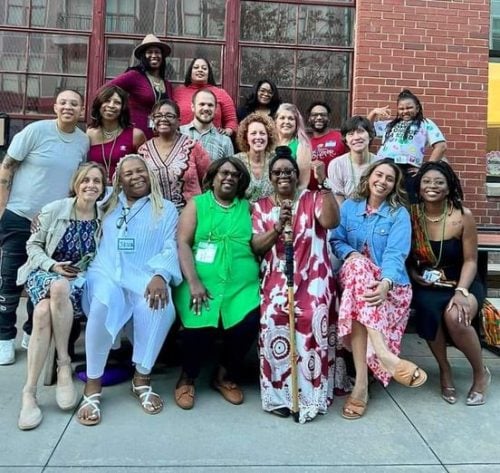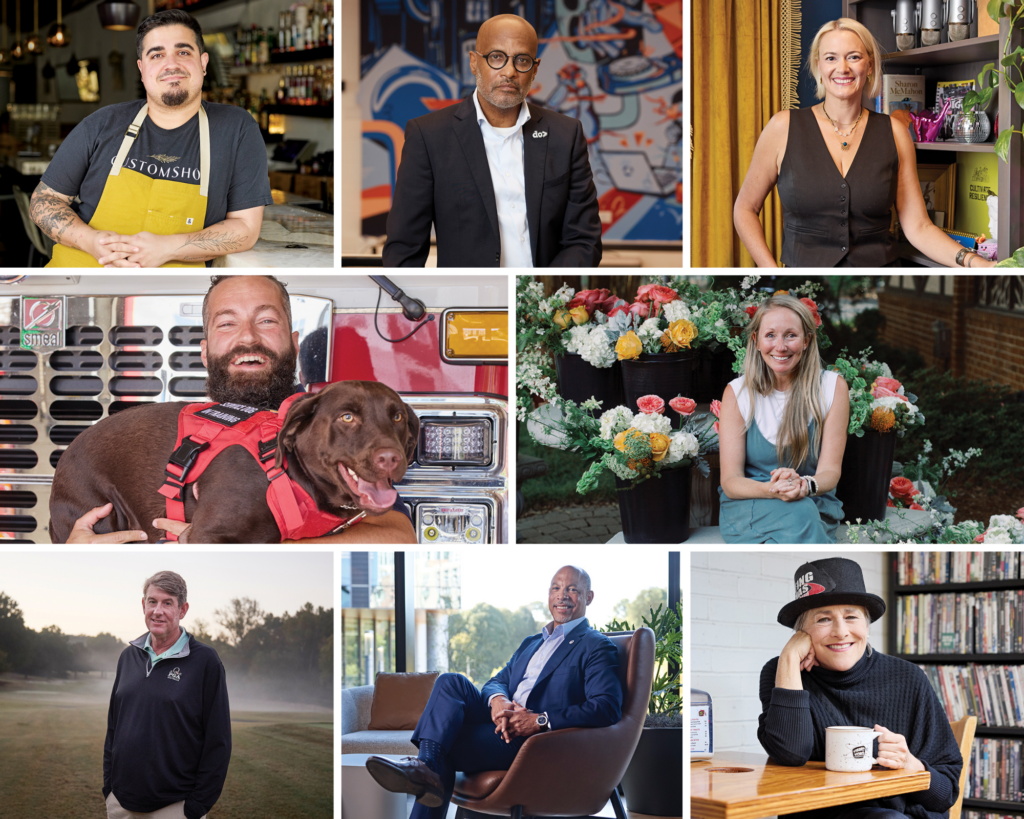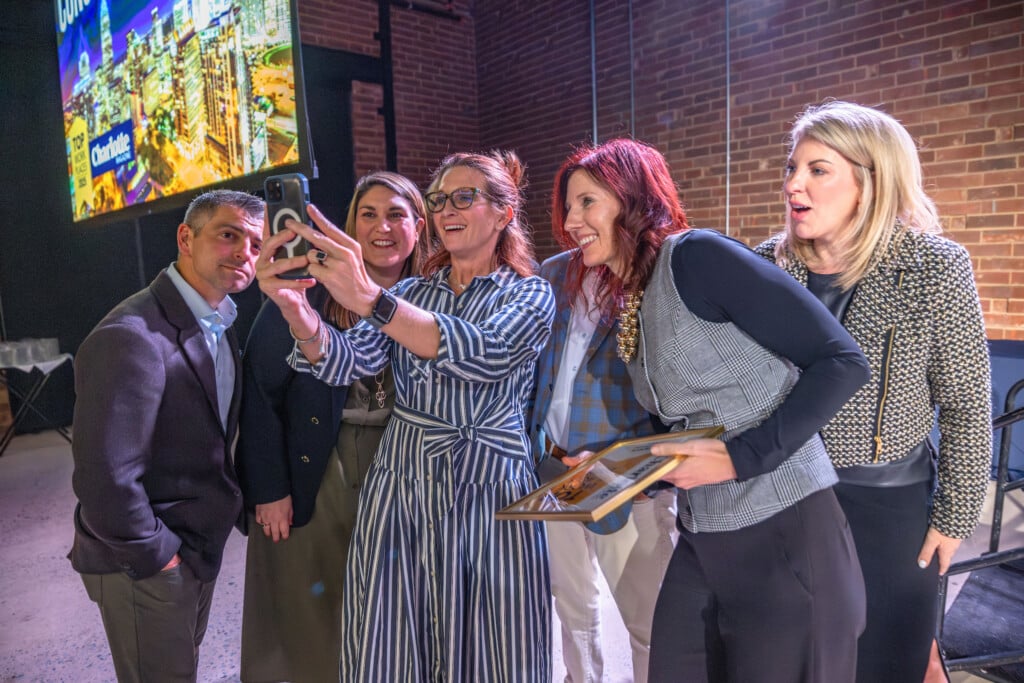Want to Change the World? Queens Has a Course For That
A Queens University program teaches Charlotteans how to build power, make change

When people come out of incarceration or homelessness, what do they need most to start anew? Instead of answering this question through a task force or panel discussion, Shakieta Maloye responded by creating a nonprofit, Another Chance: House of Refuge, and getting to work.
Answer No. 1: They need housing. Another Chance runs two transitional homes where men and women live comfortably, with healthy meals, friendships, bus passes, and a community vegetable garden out back. Answer No. 2: They need a path forward. In addition to managing their cases with the county, Shakieta partners with community groups to offer workforce training, career coaching, financial management, and even nutrition classes. Together, the answers give people what they need to start fresh: stability today and support into tomorrow.
It’s a big mission in a city that needs it. When I ask Shakieta about the full-time staff doing all this work, she laughs wearily. It’s just her.
Put an operation like this in the corporate world, and there’d be an organizational chart four levels deep. But in the nonprofit world, one person often is the org chart. To turn an idea into a nonprofit—and then to run it—requires skills that rarely coexist in the same person. It takes someone who has their head in the clouds enough to envision a better way, but with feet firmly on the ground to tackle daily details: bills, paperwork, volunteer coordination, community relationships, fundraising. Then there’s the compassion fatigue that comes with social justice work.
People aren’t born knowing how to organize, uplift, plan, and network. Surely a program exists to hone these skills? In Charlotte, that program didn’t exist until last year, and Shakieta was part of the first cohort of participants. It’s the Certification in Social Justice and Community Organizing, housed in the Stan Greenspon Holocaust and Social Justice Education Center at Queens University. It’s a 12-week program that helps community activists lead more effectively and find support.
“This is for anybody in the Charlotte-Mecklenburg area that’s seeking to figure out: How do we build power toward making the world a better place—making Charlotte a better place?” says Program Director Holly Roach Knight.
The program’s open to everyone from college undergrads to neighborhood advocates to corporate leaders. Each week, they learn to create and lead equity projects: how to plug into existing systems, focus their missions, and practice self-care. Between classes, experienced organizers serve as mentors. By the time participants graduate, they’ve not only learned to create change more effectively, but they’ve created community with dozens of teachers, mentors, and fellow organizers—relationships that Holly hopes will last long after graduation.
When Shakieta registered for the program, she’d already run Another Chance for two years. But as a lifelong student, she wanted to learn from other organizers how to grow her nonprofit.
“By the third or fourth class, I was really able to pinpoint the causes I was working toward,” Shakieta says. “It was about understanding what is broken in our American culture, but most importantly, in our area, and working (to fix) those things.”
Teachers encouraged Shakieta to reflect on her life as she fine-tuned the mission of her nonprofit. Shakieta grew up amid poverty and trauma in Florence, South Carolina, but education and her move to Charlotte allowed her to discover and embrace new opportunities. She decided that those two things—education and exposure—would guide Another Chance. Shakieta invites graduates to mentor current residents. She encourages residents to learn new things, whether that means college, trade school, or hands-on experiences. This year, she envisions everyone getting in a van to visit museums, wineries, and other cities together.
“When you live in poverty, you don’t have rich experiences to be able to expand your mind to want to seek better, do better, and obtain more,” Shakieta says. “We focus on sharing different experiences with them so that they can make a better direction for their lives.”
As Shakieta talks about Another Chance, I think of the disproportionate impact that this one person has made on our city—how many lives are better because of Shakieta. And then I think of the 20 students who will begin the SJCO program this month. And 20 more next January. What happens when, each year, dozens of the hardest-working, most generous people come together to empower and support each other to serve the underserved? A suite at Queens University might become an epicenter of change in Charlotte.





